Journalists Aimed to Give Voice to Voiceless
Friday Is Deadline to Nominate a J-Educator
Homepage photo: Authors Nick Charles, left, Patrice Gaines, Curtis Bunn, Michael H. Cottman and Keith Harriston at Mahogany Books in Washington on Wednesday, the day after their book was published. (Credit: Keith Harriston)
[btnsx id=”5768″]
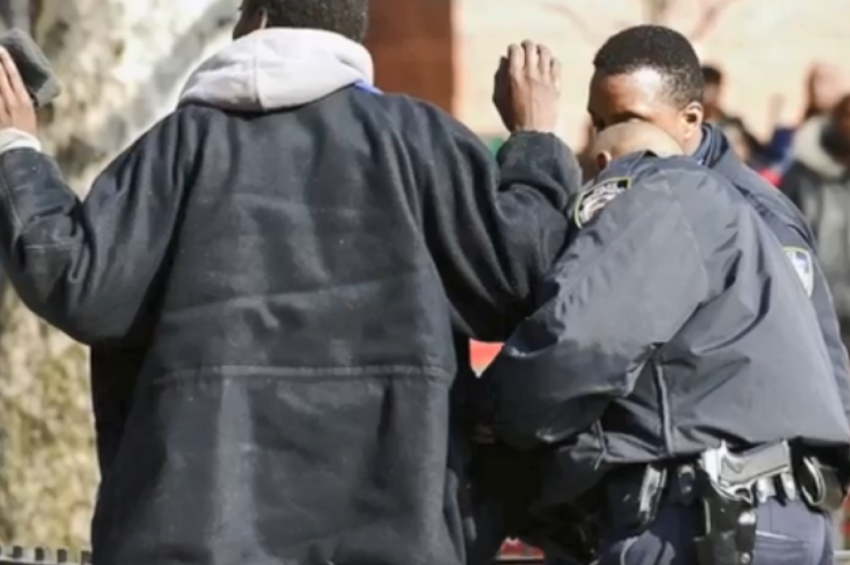
Journalists Aimed to Give Voice to Voiceless
By Dawn M. Bradbury
It started on the back of a napkin.
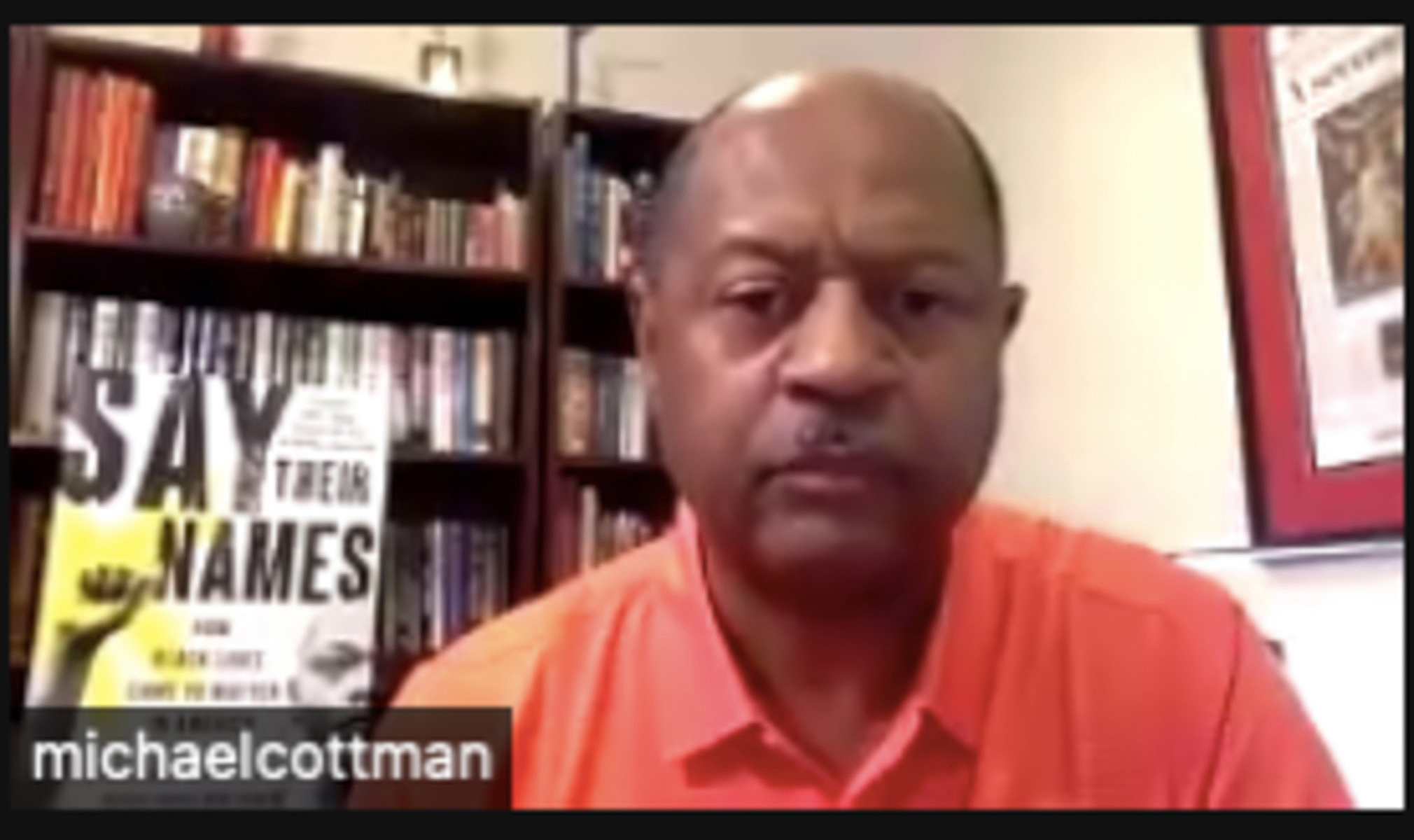 Michael H. Cottman (pictured), an award-winning journalist and author who is program editor for NBCUniversal News Group Diversity, Equity & Inclusion Team, was so fired up after George Floyd’s murder that he started scribbling notes on the back of a napkin.
Michael H. Cottman (pictured), an award-winning journalist and author who is program editor for NBCUniversal News Group Diversity, Equity & Inclusion Team, was so fired up after George Floyd’s murder that he started scribbling notes on the back of a napkin.
“I didn’t know where this was going, to be honest with you, but I knew that this was a pivotal moment,” Cottman said Oct. 7 during the Journal-isms Roundtable.
From that crumpled napkin sprang the newly released book, “Say Their Names: How Black Lives Came to Matter in America.”
Cottman connected with Curtis Bunn, Patrice Gaines, Nick Charles and Keith Harriston to examine the forces that pushed the U.S. legal system to the breaking point.
The book moved from pitch to publish in just six months.
“We were writing in the moment,” Cottman said. “We did two years of work in six months.”
Four of the authors — Michael Cottman, Patrice Gaines, Nick Charles and Keith Harriston — spoke before a Zoom audience of 55 people, with more watching on Facebook Live. (Credit: YouTube; Roundtable photos by Don Baker/Don Baker Photography Group)
Four of the authors — Cottman, Gaines, Charles and Harriston — spoke before a Zoom audience of 56 people, with more watching on Facebook Live. You can watch the video above or at < https://bit.ly/3mH5xMn >.
This group of veteran journalists — who have an intertwined history of collaboration — brought their considerable professional and personal expertise to the table to write a book examining the social issues and politics of race that affect every aspect of the current Black experience in America.
While they probed individual topics — politics, religion, incarceration, law enforcement — they were united by one goal: to give voices to the voiceless.
Harriston drew a linear connection between the slave patrols of the antebellum U.S. southern states to 2020s headlines.
“It sounded so familiar to me, not just from my reporting but from growing up in Washington, D.C.,” said Harriston, senior managing editor for GW Today and a former Washington Post reporter and editor. It was not uncommon, he said, for police cars to pull up to groups of teenagers talking on me street corners to ask what they were doing and tell them to move along.
“That kind of policing doesn’t happen in white communities — it just doesn’t,” he said.
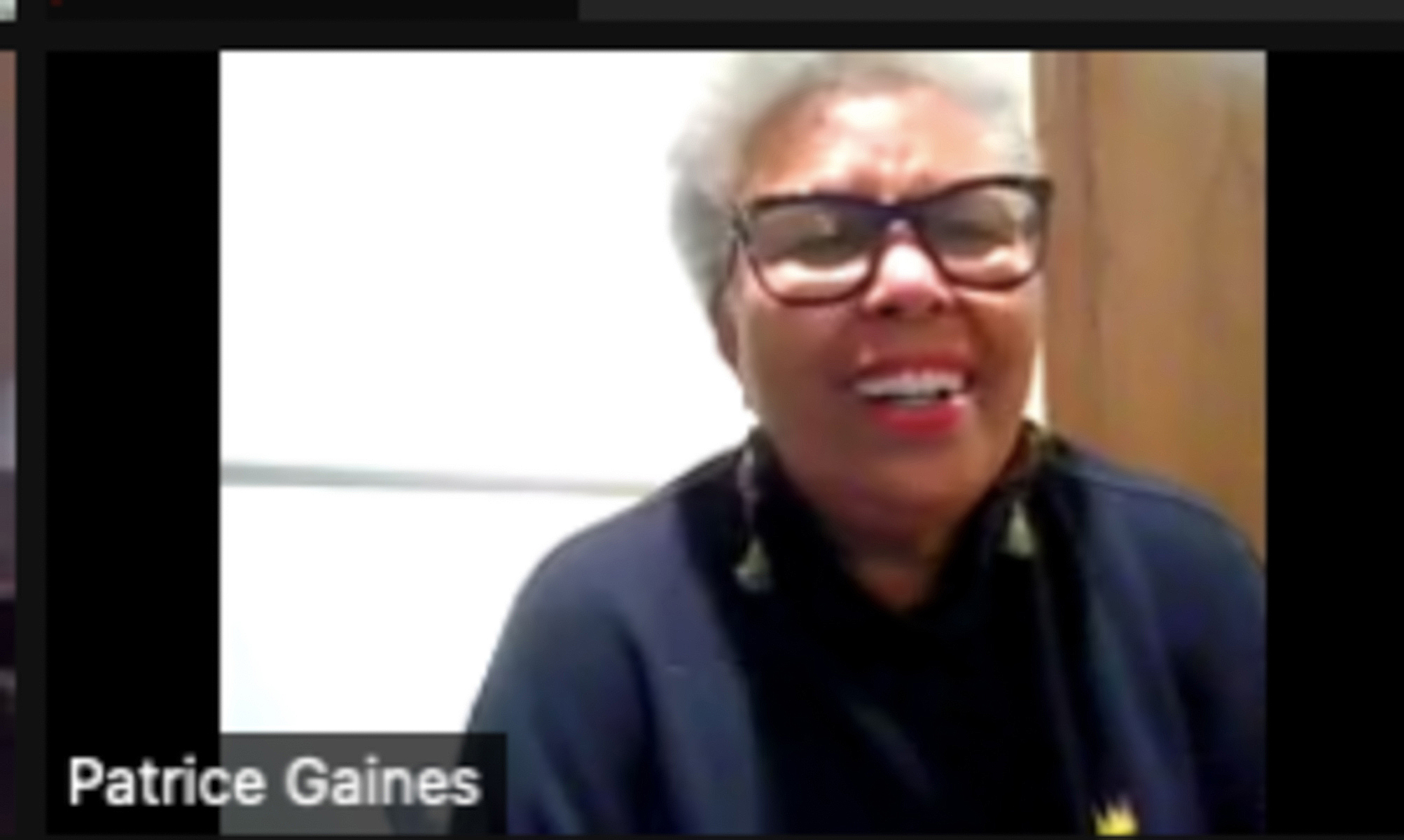 Gaines (pictured) wrote about locking up Black lives from a painfully personal perspective.
Gaines (pictured) wrote about locking up Black lives from a painfully personal perspective.
“I fell into this particular interest because when I was 21, I was busted and charged with possession of heroin with intent to distribute,” she said.
“Just being labeled a convicted felon changed my life, of course, and made me very interested and connected to other people who have to live with this label, and also made me interested in how we developed this system.”
Gaines took that interest with her to The Washington Post, where her background worked to her advantage as a reporter – it gave her “street cred,” allowing her to establish trust with her subjects.
For the book, “we tried to include the voices of people who aren’t often asked to say anything,” she said, giving the first of several shout-outs to former editor Jackie Jones, who was also on the Zoom call, for helping her fight and win battles to get these voices into print.
Charles also emphasized the crucial role of Black journalists in bringing out voices.
“As a journalist … as a Black journalist you are always confronted with what folks who are quote- unquote purists say: Be objective,” said Charles, NPR’s new chief culture editor, most recently managing director of Word in Black, a consortium of 10 Black newspapers. There’s extra scrutiny, he said, not really about objectivity but whether there is a bias against Black and brown communities. The goal, Charles said, is truth telling about the Black community and letting unfiltered voices reach readers’ ears.
Newspapers are culpable for the stories they don’t cover, Gaines said, but as Harriston emphasized, journalists are as well, for the questions they ask – and don’t ask.
“We need to think about it and we need to go deeper and we need to think about policies … you have to ask more thoughtful and probing questions on broader issues as opposed to individual things,” Harriston said.
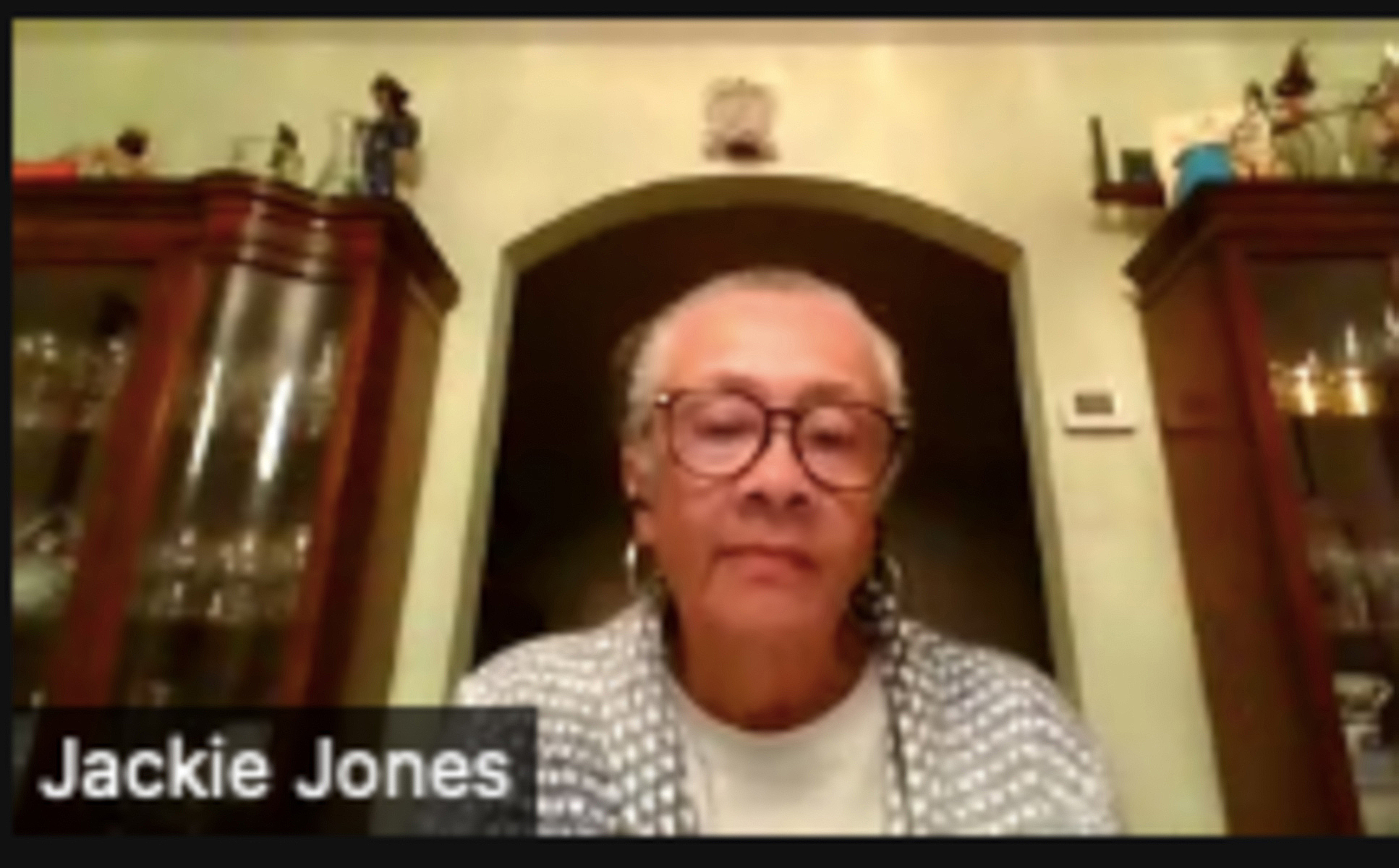 Jones (pictured), now the dean of the Morgan State University School of Global Journalism & Communication, asked what the authors tell journalism students.
Jones (pictured), now the dean of the Morgan State University School of Global Journalism & Communication, asked what the authors tell journalism students.
“Tell the truth and duck,” Cottman said, quoting his mentor, the late Les Payne.
The authors’ advice also included being tenacious about seeking answers, the important role of speaking for the voiceless and of understanding the role they can play in empowering communities — words heard by the seven American University students who joined the Roundtable.
So what’s the follow-up? Cottman declined to offer specifics but said there is a new proposal in the works — but a second book won’t be done in six months, he declared.
Charles may have offered a hint to the direction of a sequel: “We were not surprised by the inequities COVID exposed,” he said, highlighting technology and education among them. “We didn’t talk about labor, economics, housing …”
As attendee Gloria Minott, former host and public affairs director of Washington’s WPFW-FM said at the end of the Roundtable: “I have learned this evening that I have a lot of reading to do.”
The group also congratulated Jones on her promotion to the deanship of Morgan State’s journalism school; Amanda Barrett, named a vice president and head of new audiences at the Associated Press; Charles, NPR’s new chief culture editor; and Norman Parish, new deputy managing editor for DEI/administration and planning at the Chicago Sun-Times.
Dawn Broadbury is a New Hampshire-based freelance writer and editor.
- D.C. Open Government Coalition, D.C. Library Association and D.C. Office of Open Government: Upcoming webinar Oct. 12 on how to search for information from D.C. police
- Anthony McCarthy with Patrice Gaines, WEAA-FM, Baltimore: Two Way Talk: Being Black in America
Friday Is Deadline to Nominate a J-Educator
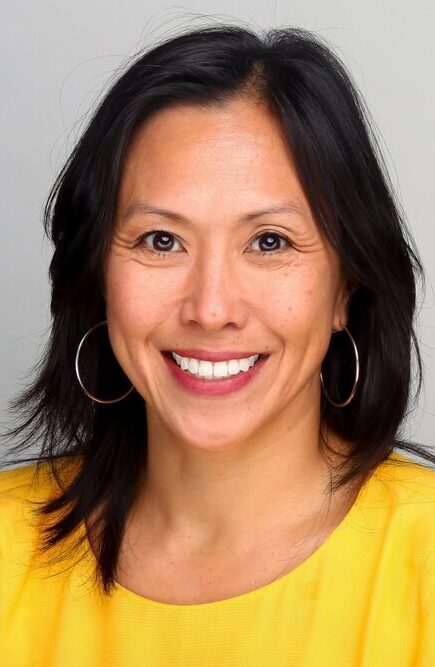
Mei-Ling Hopgood, 2020 recipient
Beginning in 1990, the Association of Opinion Journalists, now part of the News Leaders Association, annually granted a Barry Bingham Sr. Fellowship — actually an award — “in recognition of an educator’s outstanding efforts to encourage minority students in the field of journalism.”
Since 2000, the recipient has been awarded an honorarium of $1,000 to be used to “further work in progress or begin a new project.”
Past winners include James Hawkins, Florida A&M University (1990); Larry Kaggwa, Howard University (1992); Ben Holman, University of Maryland (1996); Linda Jones, Roosevelt University, Chicago (1998); Ramon Chavez, University of Colorado, Boulder (1999); Erna Smith, San Francisco State (2000); Joseph Selden, Penn State University (2001); Cheryl Smith, Paul Quinn College (2002); Rose Richard, Marquette University (2003).
Also, Leara D. Rhodes, University of Georgia (2004); Denny McAuliffe, University of Montana (2005); Pearl Stewart, Black College Wire (2006); Valerie White, Florida A&M University (2007); Phillip Dixon, Howard University (2008); Bruce DePyssler, North Carolina Central University (2009); Sree Sreenivasan, Columbia University (2010); Yvonne Latty, New York University (2011); Michelle Johnson, Boston University (2012); Vanessa Shelton, University of Iowa (2013); William Drummond, University of California at Berkeley (2014); Julian Rodriguez of the University of Texas at Arlington (2015) (video); David G. Armstrong, Georgia State University (2016) (video); Gerald Jordan, University of Arkansas (2017), Bill Celis, University of Southern California (2018); Laura Castañeda, University of Southern California (2019); and Mei-Ling Hopgood, Northwestern University (pictured) (2020).
Nominations may be emailed to Richard Prince, Opinion Journalism Committee, richardprince (at) hotmail.com. The deadline is Oct. 15. Please use that address only for NLA matters.
[btnsx id=”5768″]
To subscribe at no cost, please send an email to journal-isms+subscribe@groups.io and say who you are.
Facebook users: “Like” “Richard Prince’s Journal-isms” on Facebook.
Follow Richard Prince on Twitter @princeeditor
Richard Prince’s Journal-isms originates from Washington. It began in print before most of us knew what the internet was, and it would like to be referred to as a “column.” Any views expressed in the column are those of the person or organization quoted and not those of any other entity. Send tips, comments and concerns to Richard Prince at journal-isms+owner@
View previous columns (after Feb. 13, 2016).
View previous columns (before Feb. 13, 2016)
- Diversity’s Greatest Hits, 2018 (Jan. 4, 2019)
- Book Notes: Is Taking a Knee Really All That? (Dec. 20, 2018)
- Book Notes: Challenging ’45’ and Proudly Telling the Story (Dec. 18, 2018)
- Book Notes: Get Down With the Legends! (Dec. 11, 2018)
- Journalist Richard Prince w/Joe Madison (Sirius XM, April 18, 2018) (podcast)
- Richard Prince (journalist) (Wikipedia entry)
- February 2018 Podcast: Richard “Dick” Prince on the need for newsroom diversity (Gabriel Greschler, Student Press Law Center, Feb. 26, 2018)
- Diversity’s Greatest Hits, 2017 — Where Will They Take Us in the Year Ahead?
- Book Notes: Best Sellers, Uncovered Treasures, Overlooked History (Dec. 19, 2017)
- An advocate for diversity in the media is still pressing for representation, (Courtland Milloy, Washington Post, Nov. 28, 2017)
- Morgan Global Journalism Review: Journal-isms Journeys On (Aug. 31, 2017)
- Diversity’s Greatest Hits, 2016
- Book Notes: 16 Writers Dish About ‘Chelle,’ the First Lady
- Book Notes: From Coretta to Barack, and in Search of the Godfather
- Journal-isms’ Richard Prince Wants Your Ideas (FishbowlDC, Feb. 26, 2016)
- “JOURNAL-ISMS” IS LATEST TO BEAR BRUNT OF INDUSTRY’S ECONOMIC WOES (Feb. 19, 2016)
- Richard Prince with Charlayne Hunter-Gault,“PBS NewsHour,” “What stagnant diversity means for America’s newsrooms” (Dec. 15, 2015)
- Book Notes: Journalists Follow Their Passions
- Book Notes: Journalists Who Rocked Their World
- Book Notes: Hands Up! Read This!
- Book Notes: New Cosby Bio Looks Like a Best-Seller
- Journo-diversity advocate turns attention to Ezra Klein project (Erik Wemple, Washington Post, March 5, 2014)
When you shop @AmazonSmile, Amazon will make a donation to Journal-Isms Inc. https://t.co/OFkE3Gu0eK
— Richard Prince (@princeeditor) March 16, 2018
![]()

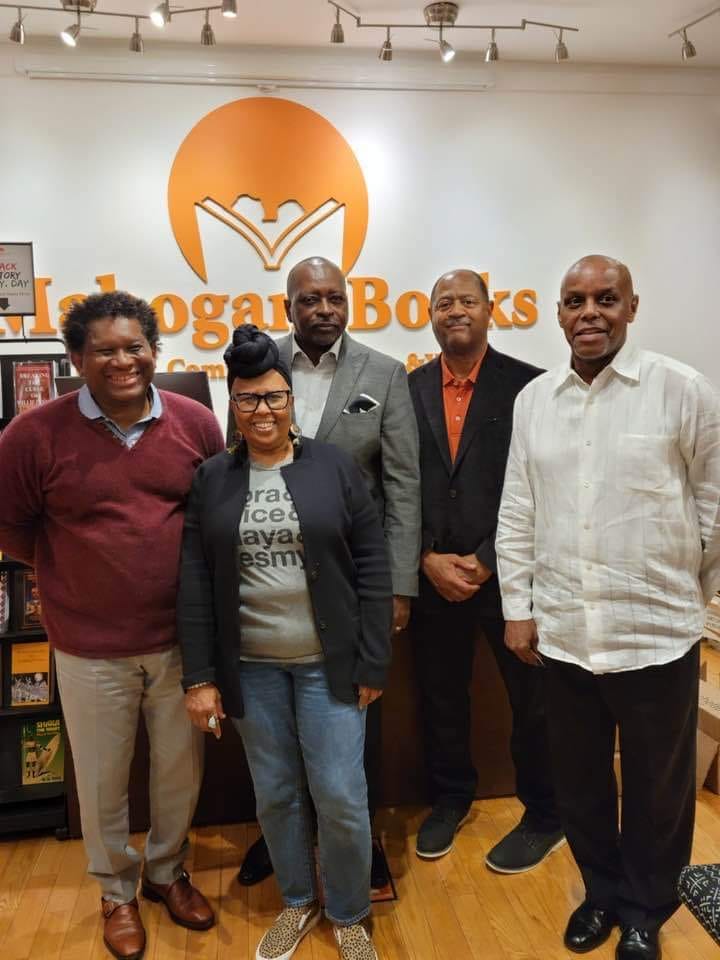
241 comments